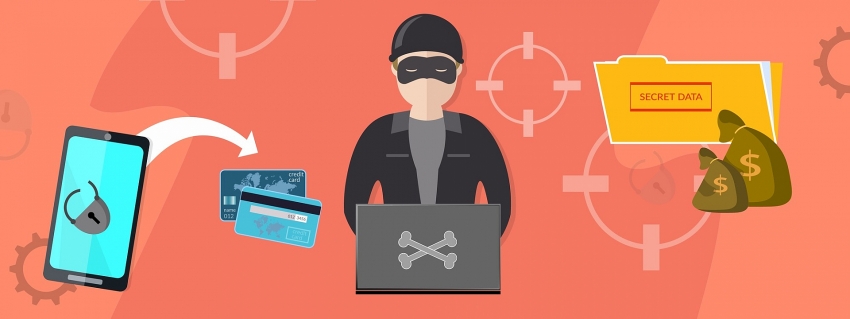Data leaks and identity theft a rising concern
 |
| In today's interconnected world, companies are creating databases of customers left and right, creating a growing threat of identity theft |
Several days ago, Pham Thi Tuyet Mai (Hanoi, 1985) caused a huge stir by sharing on her Facebook account that she was arrested at France’s Charles De Gaulle Airport on last December 18 on suspicion of drug trafficking in Belgium.
Accordingly, the offences in Belgium took place between October 2010 and May 2011, when Mai was actually not in Europe. At the French police station, Mai even provided related documents to prove her innocence. In addition, she also provided documents to prove that she had been working for a Vietnamese firm between May 2010 and May 2012, making it highly unlikely that she was in Belgium at the time.
At the first trial, Mai’s lawyer pointed out that this is a typical case of identity theft, which means that someone stole Mai’s personal data to commit an offence. Mai’s case is a warning call about identity theft which is becoming a growing threat in the digital era.
Global threat
Technology improvements are making people citizens of a global village, where it is far easier to access people’s data. For instance, people provide a host of personal information, including full name, email address, date of birth, phone number, and others to register on Facebook. As a result, Facebook now holds an astounding database of personal data of people across the globe.
Similarly, a large number of websites require users to make accounts to use their services in Vietnam. Breaking into a single one of these databases could result in customers’ identity stolen.
Furthermore, when people go abroad on holidays, hotels also scan their passports. In addition, clinical records in hospitals and personal data stored in companies also pose huge risks. In conclusion, the more places people provide their personal data to, the greater the risks of a data leak and having their identity stolen.
In last March, Facebook was caught up in a huge scandal for mining data from 50 million user profiles for Cambridge Analytica without express approval from users. This data handling was not only widely irresponsible, but in straight contrast to Facebook’s data security obligations. Additionally, it widened unauthorised and unsupervised access to the personal information of affected customers.
According to statistics published by LifeLock – a US-based identity theft protection company, there were 1,000 instances of data leak in England in 2016. Other statistics published by The Harris Poll (a US-based market research company) stated that about 7 million people fell victim to data theft in England in 2017.
What do criminals steal personal data for?
Criminals, to cover their traces, often steal personal data via hacking into websites or social networks to commit offences. The offences include financial scams, tax evasion, e-fraud, and phone scams, among others.
More seriously, criminals can use someone else’s identity to illegally enter a country, engage in smuggling, deal in drugs, and commit other offences – and it may take the victims their entire lifetime to prove their innocence.
In case someone’s identity was used for drug trafficking, he or she would be arrested and placed in temporary detention or put to trial until they can prove their innocence.
Preventing identity theft
At present, there are no ways to completely prevent identity theft because criminals’ arsenal is changing very fast, taking advantage in security holes created by the breakneck speed of technology development. However, to get rid of the risks, www.usa.gov pointed out the following steps to protect you from identity theft:
|
What the stars mean:
★ Poor ★ ★ Promising ★★★ Good ★★★★ Very good ★★★★★ Exceptional
 Tag:
Tag:
Related Contents
Latest News
More News
- Foreign leaders extend congratulations to Party General Secretary To Lam (January 25, 2026 | 10:01)
- 14th National Party Congress wraps up with success (January 25, 2026 | 09:49)
- Congratulations from VFF Central Committee's int’l partners to 14th National Party Congress (January 25, 2026 | 09:46)
- 14th Party Central Committee unanimously elects To Lam as General Secretary (January 23, 2026 | 16:22)
- Worldwide congratulations underscore confidence in Vietnam’s 14th Party Congress (January 23, 2026 | 09:02)
- Political parties, organisations, int’l friends send congratulations to 14th National Party Congress (January 22, 2026 | 09:33)
- Press release on second working day of 14th National Party Congress (January 22, 2026 | 09:19)
- 14th National Party Congress: Japanese media highlight Vietnam’s growth targets (January 21, 2026 | 09:46)
- 14th National Party Congress: Driving force for Vietnam to continue renewal, innovation, breakthroughs (January 21, 2026 | 09:42)
- Vietnam remains spiritual support for progressive forces: Colombian party leader (January 21, 2026 | 08:00)
























 Mobile Version
Mobile Version